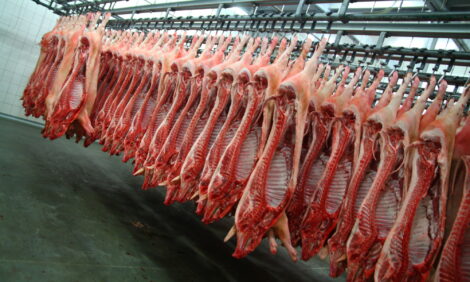



From Sustainability to Sustained Ability
By the National Pig Association - This report is a Strategy for Continuous Professional Development within the Pig Production Industry in England.|
NPA is active on members' behalf in Brussels & Whitehall, and with processors, supermarkets & caterers - fighting for the growth and pros-perity of the UK pig industry. |
Chairman's Foreword
This strategy will ensure that continuous professional development is at the heart of every pig business in England.
It is the single most important factor in ensuring the sustainability of the industry in the next ten years.
Following the impact of Foot and Mouth Disease on the livestock industry in 2001, the Policy Commission on the
Future of Farming and Food chaired by Sir Don Curry launched a new vision for the industry. The key:
Sustainability.
The pig industry has been amongst the first to embrace this new concept. In conjunction with Defra’s Sustainable
Development Strategy, the industry has launched a series of initiatives under the umbrella of the BPEX Road to
Recovery strategy, which is delivering improved productivity and competitiveness and world-leading health and
welfare.
However, the success of all of these initiatives relies on our single most important asset: the people who work in our
industry.
This new strategy provides an exciting opportunity to take the industry forward. It will build on existing skills in our
industry’s dedicated workforce and will also attract new people to the industry and motivate us all to meet the
challenges of the future through a culture of continuous professional development.
The strategy seeks to create an ethos that puts continuous professional development at the centre of all pig
production businesses. More fundamentally it will create an environment where training is demand-led.
This will be no short-term fix; it will require a sustained effort by all parties and it may take several years for the
industry to fully embrace all that is inherent within continuous professional development.
And whilst there may well be an increasing level of confidence in the industry today, there will undoubtedly be many
more challenges to face over the years ahead.
With all that in place we will have created the Sustained Ability necessary to deliver Sir Don Curry’s vision of Sustainability.
I urge everyone with our industry’s best interests at heart to fully embrace this strategy.
Richard Longthorp
Strategy Implementation Group Chairman
Executive Summary
This five-year draft skills development strategy for the English and Welsh pig industry has been developed by Lantra
in conjunction with Defra, the British Pig Executive, National Pig Association, Agricultural Development in the Eastern
Region and Agskills. It builds on preparation and background work already carried out by, and on behalf of, the
National Pig Association and The British Pig Executive.
The English and Welsh industry recognises that the aim of delivering a more competitive, profitable and sustainable
pig industry will only be achieved on the back of a highly skilled, proficient and stable workforce. There is therefore
a clear need to address the skills and development requirements of both employers and employees through the
development of a skills strategy and to encourage new entrants into the industry and to provide appropriate
professional development for those working in the industry.
The strategy for skills development has to be informed by and reflect the requirements of the existing BPEX Road
to Recovery strategy, British Pig Health and Welfare Strategy; the Research and Development Strategy and Defra’s
Sustainable Development Strategy.
Government policy is working towards:
- Improving the skills of young people between the ages of 14-19 years
- Supporting adults to train
- Supporting employers to train
Reviewing the current qualification frameworks - ensuring qualifications meet business need
Currently the industry is facing severe recruitment and retention issues. In certain instances the lack of suitable staff
has limited the size of units and has, in extreme cases, been responsible for producers going out of business.
The age profile of those in the industry shows by 2015, 55 per cent will be over 40.This means young people must
be attracted and retained. Because of the time-lag involved in the training of young people it will not be possible to
depend solely on the natural inflow.
Opportunities need to be developed that allow individuals to gain recognition for the training and skills development
they have undertaken as the competence of staff often goes unrecognised.
Employers recognise that to develop a skilled workforce there is a need to rationalise delivery so that the industry is
able to access consistent quality and cost-effective educational and training programmes that meet both the needs
of the employers and those of the employees. A comprehensive training strategy must bring together examples of
current best practice within sector training initiatives and align these with the emerging government skills strategies
for the benefit of industry.
The pig industry has undergone contraction and rationalisation over the past few years and what is now left is an
increasingly concentrated industry with the potential to organise itself into focused supply chains.
This strategic plan outlines the increasing demand for flexible and focused learning that is delivered at a time and
place appropriate to the business through bite-sized learning using a blend of established and developing
technologies.
The current take-up of training within the pig industry is very low. It involves time off-site and the courses are often
seen as bureaucratic with high reliance on written work.
One of the main factors also affecting uptake is cost.The cost of training itself may be covered but the costs of
releasing someone to undergo the training are not addressed. The industry will work with funding agencies to cover
as much of the cost of off-site training as possible. Clearly where training and assessment can be undertaken on
site, this presents less of a barrier.

Source: National Pig Association - 9th June 2005









